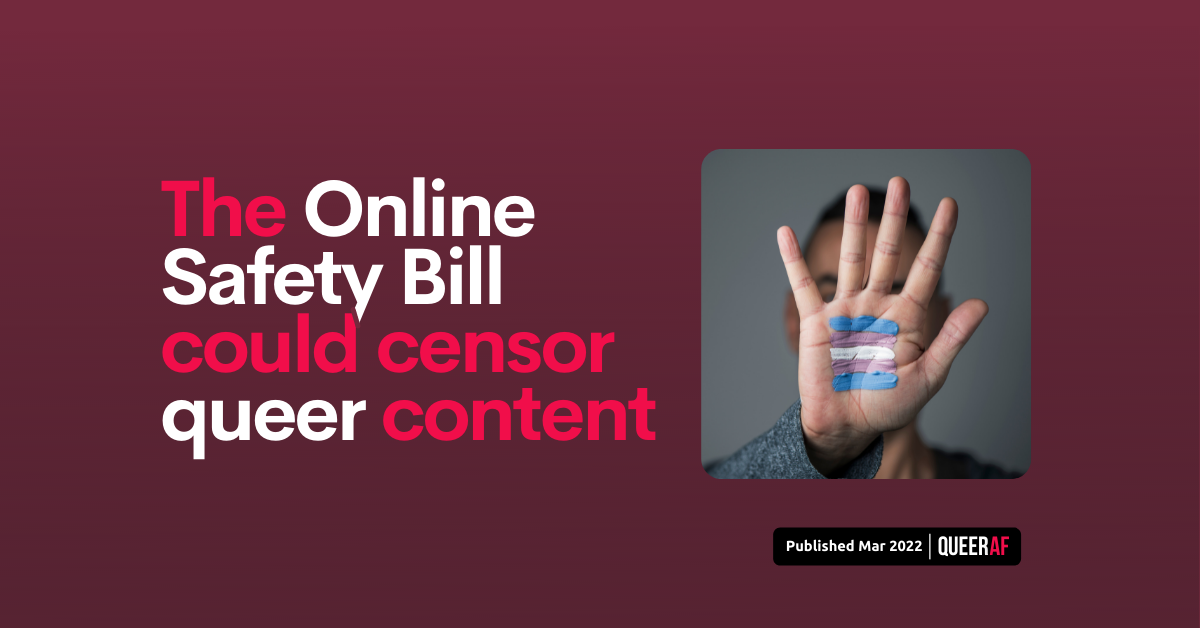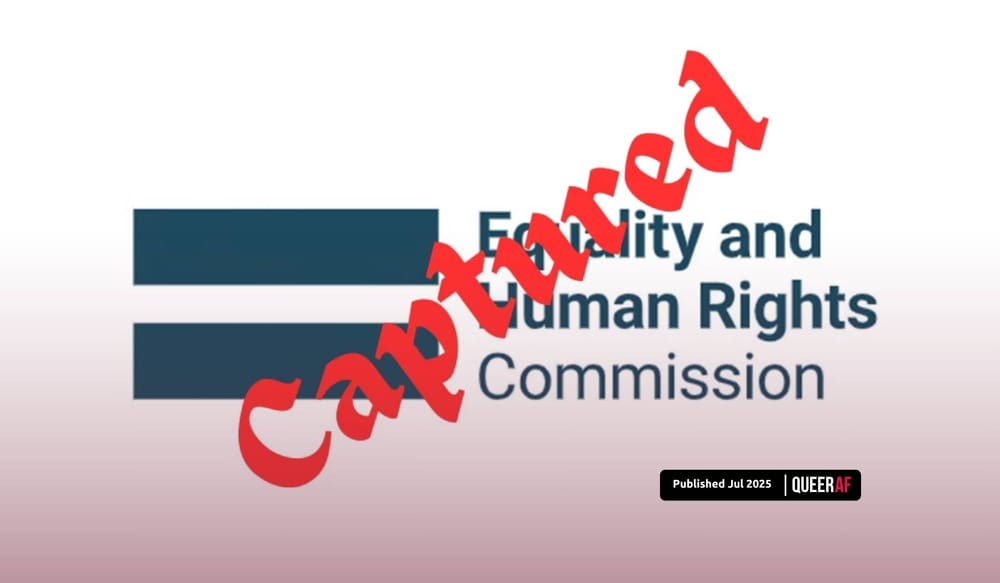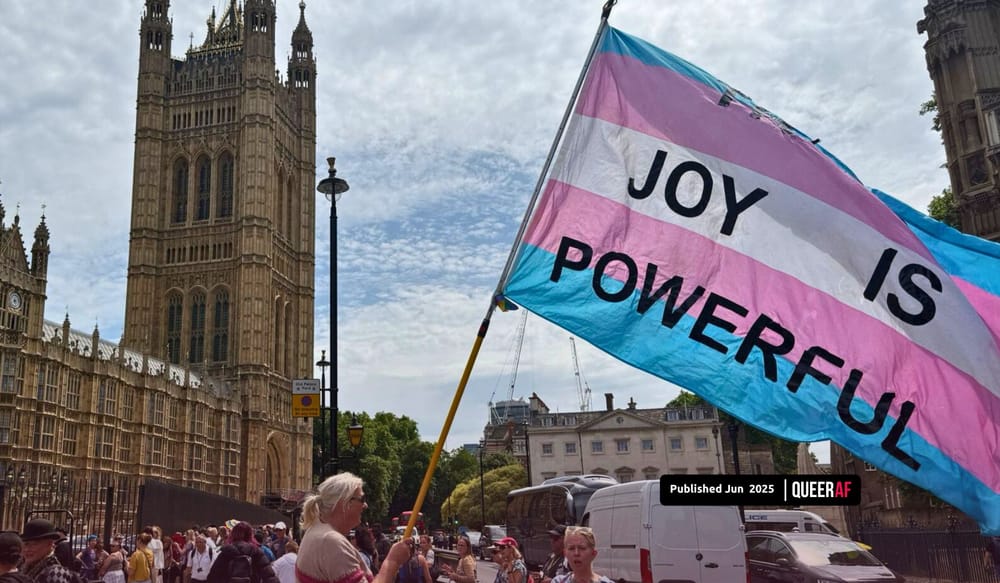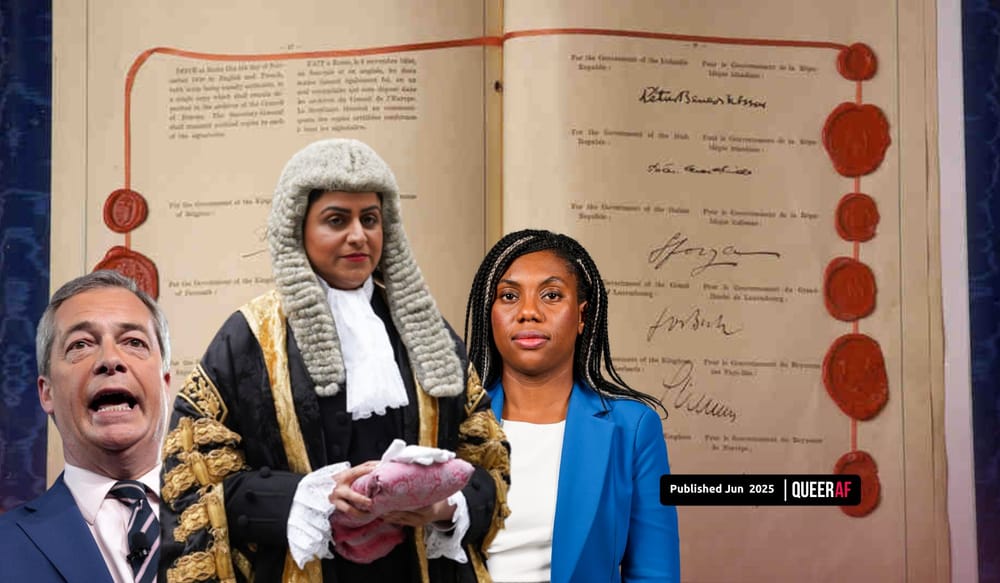TLDR: The Online Safety Bill sounds like it will make the internet a safer place to navigate ‘culture wars.' But instead, it has a legal loophole that could make transphobia in the press justifiable in law.
What is the Online Safety Bill?
The Online Safety Bill was published on Thursday. It's a long, heavy and complicated bill. But here is what we know.
The headlines were initially were mostly positive, covering the welcome addition of making cyber flashing a crime.
But as the organisations who work in this sector begin to translate its full meaning, it’s becoming clear that this bill could censor many facets of our lives. It's already being touted as one of the strongest online censorship bills in the world.
Not least because it aims to create barriers to online anonymity. I know this sounds like a no-brainer. An option to filter out the bots is surely a great idea?
But what if you are using the internet to explore queerness? What if it’s the only safe place for you to be out?
Anonymity allows LGBTQIA+ people to share their experiences and identity while protecting their privacy.
This bill could lead to us losing that space.
Indeed, it's likely to filter even more queer voices out from online platforms, where the algorithms are already stacked against us.
Skip the algorithms, get a free weekly TLDR of the LGBTQIA+ headlines every Saturday in our top-rated 4.8/5⭐ newsletter
Potential for LGBTQIA+ content censorship
Another duty brought in by the bill will require platforms to provide users with options to opt-out of seeing harmful content. In the bill, 'harm' is defined as "psychological harm amounting to at least serious distress."
This definition is why I and many LGBTQIA+ organisations are concerned. As it stands, this definition of ‘harm’ could result in perfectly legal speech being removed from the web.
It could be used by actors who want to justify banning LGBTQIA+ content to ‘protect’ the public. This is something moderation tools and even platforms like TikTok, Tumblr and YouTube have all gotten in trouble for.
Whether it's by marking innocent LGBTQIA+ content as explicit or harmful, by accident or design, or creating 'On/Off' filters for LGBTQIA+ content to avoid fines, the ramifications could be huge.
The good news is, racism, homophobia, transphobia, and threats of violence are already illegal.
And so, with a simple change, this law could backup and strengthen protections we have IRL and take them online. With specific, written, protections for legal LGBTQIA+ content online this bill could even deliver a modern law that can prevent hate online.
The newspaper opt-out
Finally, there is a crucial section of the bill that discusses news organisations and journalists being "protected" from the bill when publishing content of "democratic importance."
It means that news organisations, with mighty online presences, won't be held to the standards of the bill. They'll get a legal loophole for publishing 'harmful' content - for example, transphobia.
Indeed, because much of the Hacking Inquiry's recommendations were not implemented, the UK press isn't regulated as well as campaigners want.
While IMPRESS, an independent press regulator, say there are loopholes within this exemption that could potentially be exploited. In short, anyone could set up a 'news website' to get around the rules.
It's why Hacked Off has already launched a petition asking people to "reject plans to regulate your social media, more than newspapers."
After all, the bill hands its powers to Ofcom, the media regulator that, like the BBC, withdrew from Stonewall because the charity fights for transgender rights. Both organisations see trans lives as an 'active policy debate,' as one BBC staffer told me.
That bears repeating: Ofcom, the regulator being given new powers to tackle ‘harmful’ content online, sees trans lives as a ‘policy debate’.
The Online Safety Bill could well be the first step in broader censorship of LGBTQIA+ content online. Whether from the soft power of platforms not wanting to get fined for 'harm', or because anti-LGBTQIA+ organisations use it as a vehicle to make legal challenges that will ban content about us.
All while the press could get a loophole to publish transphobic headlines about the very harmful online content this bill should prevent.
The bill will now make its way through parliament. As amendments are brought forward we'll cover them in our free weekly newsletter that summarises, understands and explains the LGBTQIA+ headlines:

I started QueerAF to fund queer media careers.
Behind the scenes, we are supporting underrepresented and emerging queer creatives to kickstart their career.
This, while we build a community-centred platform that works for our community, not advertisers. We commission content for our free weekly newsletter because it counts, not for clicks.
We need to support a new generation of queer voices who can go on to change the media.
Will you join QueerAF members like comedian Joe Lycett and the MD of Forbes in Europe, to make that possible?












